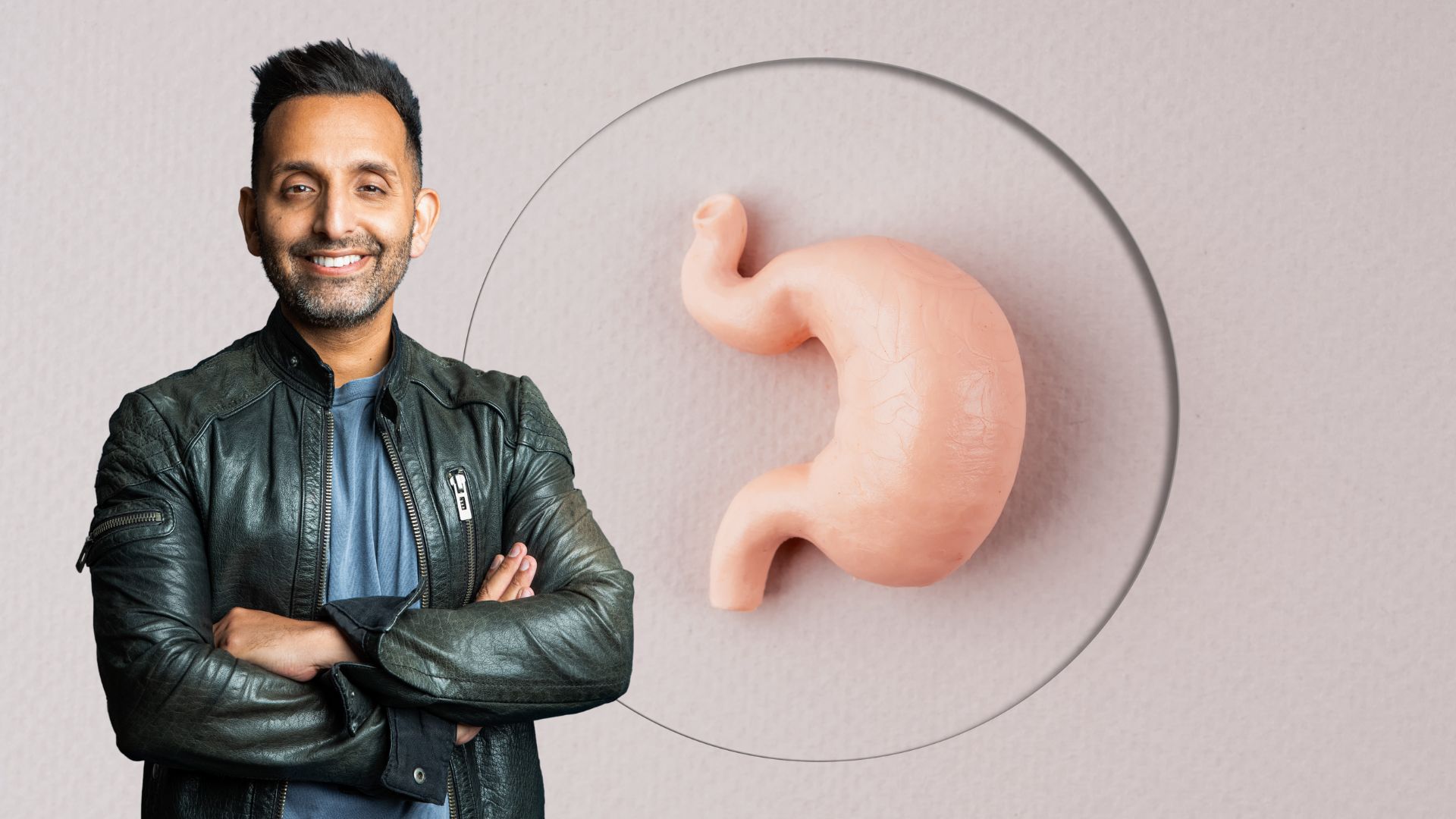How do you know if your gut is healthy? Dr Amir Khan reveals 5 signs it's in 'good shape' already
From signs of a healthy digestive system to a happy brain, there are some simple ways to work out if your gut is firing on all cylinders


With so many supplements and quick fixes for gut health these days, it's easy to think that all our digestive systems are in crisis mode and that everyone needs to learn how to improve gut health.
In 2025, there's no doubt that gut health is big business, which means that it's finally getting the attention it deserves. "Your gut isn't just about digestion," says Dr Amir Khan, a GP, frequent guest on This Morning and Lorraine, and woman&home's own resident doctor, tells us. "It's home to trillions of bacteria. That's your microbiome that helps regulate your immune system, hormones, skin, brain function, and even your mood."
However, given that about 40% of people worldwide meet the criteria for at least one gastrointestinal disorder linked to an imbalanced gut microbiome, it means roughly 60% of people don't. That's potentially millions of us playing around with gut health supplements and other fixes when we don't need to. At best, this means we're producing expensive urine as we dispose of what we don't need. At worst, it could actually be interfering with our gut health.
So, how do you know if your gut is healthy to begin with? We asked Dr Amir Khan to reveal all.
A post shared by woman&home (@womanandhome)
A photo posted by on
How do you know if your gut is healthy?
1. You have regular, comfortable poos
A healthy gut means "regular, comfortable bowel movements," says Dr Khan. "Ideally, once a day, soft but well-formed, like a smooth sausage."
If you don't fancy staring into the toilet after you've been, you'll be able to tell by feeling.
"Constipation, diarrhoea, or excessive bloating can all suggest something's off balance," says the doctor.
Sign up to our free daily email for the latest royal and entertainment news, interesting opinion, expert advice on styling and beauty trends, and no-nonsense guides to the health and wellness questions you want answered.
2. You have minimal bloating and gas
Some bloating and gas are very normal, especially after eating a meal full of fibre-rich foods, as the bacteria in our gut ferment the fibre and produce gas.
"But persistent, painful, or loads of smelly wind could be a sign your gut bacteria aren't happy," he says. "A healthy gut digests food efficiently and doesn't leave you feeling like you've swallowed a balloon."
3. Good energy and good mood
Wondering how to boost your mood? The answer lies in the gut, says Dr Khan. "There's a strong connection between the gut and the brain. A healthy gut produces around 90% of your body's serotonin. That's your body's feel-good chemical. It can help stabilise energy and mood."
So, if you're full of beans and in a good mood after your morning brew (which can also help as coffee is good for gut health), then it's a sign everything's alright with your digestive system.
"If you're feeling sluggish, anxious, or low, your gut may need a little bit of TLC," adds Dr Khan.
4. You rarely get sick
One way to figure out if your gut health in winter is up to scratch is to look at how many times you get a cold and how long it takes to fight that cold off.
"70% of your immune system lives in your gut. If you fight off colds easily and fight off colds quickly, your microbiome could be doing a top job," says the doctor.
5. You have healthy skin
Just as your gut health is "closely linked" to your mood, digestive system, and immune system, it's linked to your skin's health. As the largest organ in the body (yes, really), this doesn't come as much of a surprise.
"If your skin is clear and calm and you're not in a constant flare of spots, eczema, or rosacea, your gut might be helping to keep that inflammation in check," says Dr Khan.
How do I improve my gut health?
If you weren't ticking off the list above, your gut may be in trouble. The good news is, there's one easy thing you can do to get back on track: "Eat plenty of the good stuff," says Dr Khan. This includes plants, fermented food, and plenty of fibre-rich foods.
These include:
- Whole grains, such as oats and wholemeal bread
- Legumes, like beans, lentils, and chickpeas
- Fruits and vegetables
- Nuts
- Seeds
- Starchy vegetables, such as potatoes with their skins on
If you have any concerns about your gut health or other symptoms, speak to your doctor, who will be able to offer a diagnosis of your personal situation.

Grace Walsh is woman&home's Health Channel Editor, working across the areas of fitness, nutrition, sleep, mental health, relationships, and sex. She is also a qualified fitness instructor.
A digital journalist with over seven years experience as a writer and editor for UK publications, Grace has covered (almost) everything in the world of health and wellbeing with bylines in Cosmopolitan, Red, The i Paper, GoodtoKnow, and more.
You must confirm your public display name before commenting
Please logout and then login again, you will then be prompted to enter your display name.